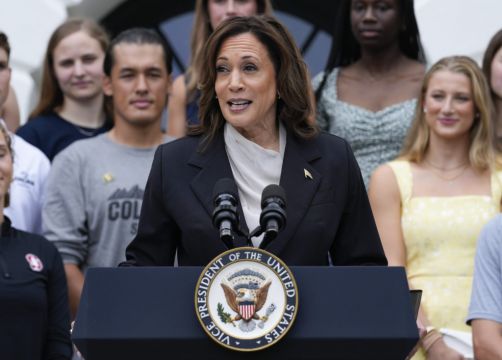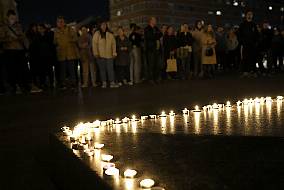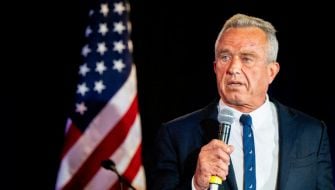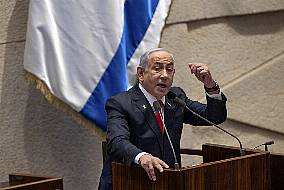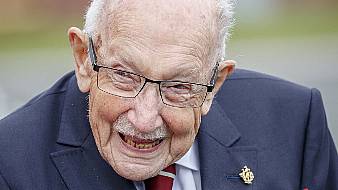Vice president Kamala Harris has secured the support of enough Democratic delegates to become her party’s nominee against Republican Donald Trump, according to an Associated Press (AP) survey.
The survey was taken in the aftermath of President Joe Biden’s decision to drop his bid for re-election.
The quick coalescing behind Ms Harris marked an attempt by the party to put weeks of internecine drama over Mr Biden’s political future behind them and to unify behind the task of defeating Mr Trump with just over 100 days until the election.
Prominent Democratic elected officials, party leaders and political organisations quickly lined up behind Ms Harris in the day after Mr Biden’s exit from the race and her campaign set a new 24-hour record for presidential donations on Monday.
Several state delegations met late on Monday to confirm their support for Ms Harris, including Texas and her home state of California.
By Monday night, Ms Harris had the support of at least 2,579 delegates, according to the AP tally of delegates, more than the 1,976 delegates she will need to win on a first ballot. No other candidate was named by a delegate contacted by the AP.
California state Democratic chairman Rusty Hicks said 75% to 80% of the state’s delegation were on a call on Tuesday and they unanimously supported Ms Harris.
“I’ve not heard anyone mentioning or calling for any other candidate,” Mr Hicks said. “Tonight’s vote was a momentous one.”
Still, the AP is not calling Ms Harris the new presumptive nominee. That is because the convention delegates are still free to vote for the candidate of their choice at the convention in August or if Democrats go through with a virtual roll call ahead of that gathering in Chicago.
Worries over Mr Biden’s fitness for office were replaced by fresh signs of unity after a seismic shift to the presidential contest that upended both major political parties’ carefully honed plans for the 2024 race.
Speaking to campaign staff in Wilmington, Delaware, Ms Harris acknowledged the “rollercoaster” of the last several weeks, but expressed confidence in her new campaign team.
“It is my intention to go out and earn this nomination and to win,” she said. She promised to “unite our Democratic Party, to unite our nation, and to win this election”.
She quickly leaned into the themes that will be prominent in her campaign against Mr Trump over the coming 100 days, contrasting her time as a prosecutor with Mr Trump’s felony convictions — “I know Donald Trump’s type”, she said — and casting herself as a defender of economic opportunity and abortion access.
“Our fight for the future is also a fight for freedoms,” she said. “The baton is in our hands.”
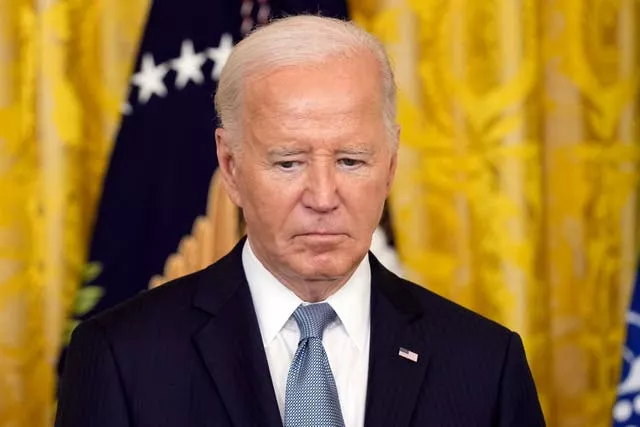
The president called into the meeting from his home in Rehoboth Beach, Delaware, where he is recovering from Covid-19, to lend his support to Ms Harris. He planned to talk about his decision to step aside in an address to the nation later this week.
“The name has changed at the top of the ticket, but the mission hasn’t changed at all,” Mr Biden said in his first public remarks since announcing his decision to step aside, promising he was “not going anywhere” and plans to campaign on Ms Harris’ behalf.
Mr Biden said of his decision: “It was the right thing to do.”
As he handed off the mantle of leadership to Ms Harris, Mr Biden added: “I’m watching you kid. I love you.”
Ms Harris was headed to the battleground state of Wisconsin on Tuesday as her campaign for the White House kicks into high gear. The event in Milwaukee will be her first full-fledged campaign event since announcing her candidacy.
The AP tally is based on interviews with individual delegates, public statements from state parties, many of which have announced that their delegations are supporting Ms Harris en masse, and public statements and endorsements from individual delegates.
Locking up the nomination was only the first item on the staggering political to-do list for Ms Harris after learning of Mr Biden’s plans to leave the race on Sunday morning on a call with the president. She must also pick a running mate and pivot a massive political operation that had been built to re-elect Mr Biden to boost her candidacy instead.
On Sunday afternoon, Mr Biden’s campaign formally changed its name to Harris for President, reflecting that she is inheriting his political operation of more than 1,000 staffers and war chest that stood at nearly 96 million dollars (£73.9 million) at the end of June.
She added 81 million dollars to that total in the first 24 hours after Mr Biden’s endorsement, her campaign said — a presidential fundraising record — with contributions from more than 888,000 donors.
The campaign also saw a surge of interest after Ms Harris took over, with more than 28,000 new volunteers registered since the announcement — a rate more than 100 times an average day from the previous Biden re-election campaign, underscoring the enthusiasm behind Ms Harris.
Big-name Harris endorsements on Monday, including from governors Wes Moore of Maryland, Gretchen Whitmer of Michigan, JB Pritzker of Illinois and Andy Beshear of Kentucky, left a vanishing list of potential rivals.
Former House speaker Nancy Pelosi, who had been one of the notable holdouts, initially encouraging a primary to strengthen the eventual nominee, said she was lending her “enthusiastic support” to Ms Harris’ effort to lead the party.
Ms Harris, if elected, would be the first woman and first person of South Asian descent to be president.
The Democratic National Convention is scheduled to be held on August 19-22 in Chicago, but the party had announced it would hold a virtual roll call to formally nominate Mr Biden before in-person proceedings begin.
The convention’s rules committee is scheduled to meet this week to finalise its nomination process with a virtual vote as soon as August 1, the party announced on Monday, with the process completed by August 7.
“We can and will be both fast and fair as we execute this nomination,” Jaime Harrison, the Democratic National Committee’s chair, said on a conference call with reporters.
The party said the virtual roll call would feature multiple rounds of voting on nominees if multiple candidates meet the qualification threshold. To qualify, candidates must have the electronic signatures of 300 convention delegates.
